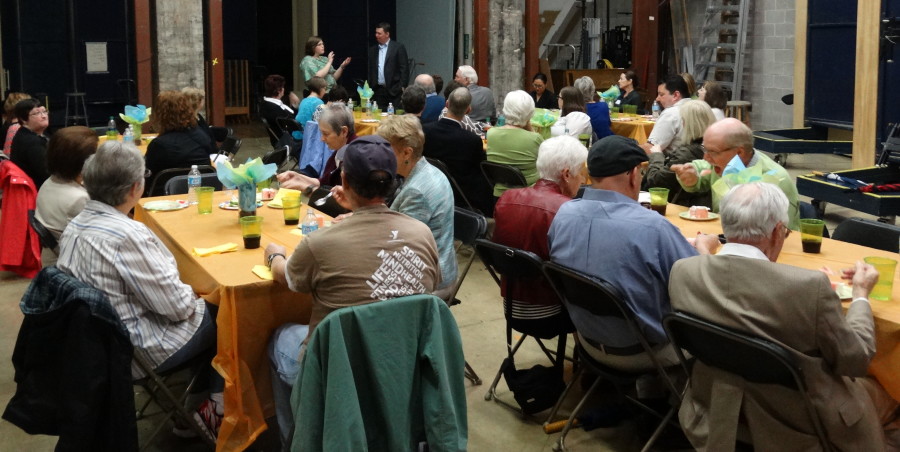Like many people in arts organizations, I get to wear many hats in my job. One of my favorites is that of volunteer coordinator. Each season, we rely on over 100 volunteers to help our small staff do big work.
As I was gearing up for volunteer sign-ups and making some changes to the program, Vu Le’s July, 2015 blog post “Volunteers and the Bahn Mi of Social Justice” came through my inbox.
In his post, Vu talks about how nonprofits, many of whom couldn’t do their work without volunteers, are often really bad at treating their volunteers well. We go to great lengths to thank and recruit donors, but volunteers (who are time-donors) often get overlooked.
He gives four recommendations to changing how we work with volunteers:
- Support volunteer management staff: “We could get more stuff done if every nonprofit had a full-time volunteer engagement professional. The few that I know are great, but always teetering on the edge of their positions being cut. Nonprofits, build this position and associated volunteer engagement costs into your budget…”
A staff position that only deals with volunteers might be the ultimate luxury. But, chances are, someone is coordinating your volunteer program. Make sure that person has the support and the information they need to coordinate your volunteers well.[divider] - Recognize the role volunteers play in marginalized communities: “Many organizations led by communities that are of color, LGBTQ, disabled, rural, etc. often do not have enough funding for robust staffing. Volunteers, then, are critical for these organizations’ work. Funders and donors can greatly help these communities by recognizing and supporting these organizations to build strong volunteer management infrastructure.”
I would take this in a different route for arts organizations. We work everyday to bring art to underserved populations, but often it’s hard to get in the door of that community. Recognize that volunteers bring unique backgrounds and relationships to your organization and could serve as door-openers or as champions in the community.[divider] - Change the philosophy around how you value volunteer contributions: “At the risk of oversimplifying, we should make it a habit to treat volunteers like donors. Just as we should be appreciative for every financial gift big or small, we should be just as appreciate for every single gift of time and talent.”
Joe Patti has an awesome post on Artshacker that talks about how to appropriately count volunteer hours and it then links to an Independent Sector report on the value of volunteer time in different states.[divider] - Make volunteer appreciation a regular part of the work: “I don’t think it needs to be elaborate, just consistent and genuine. At every staff meeting, for example, spend a few minutes brainstorming the awesome volunteers for the week/month/quarter, and write or call to thank them personally, like you would a donor. The thing I’ve noticed about volunteers is that they often don’t expect to be thanked, which is a reason why they should be, and hearing from your team goes a long way.”
Two years ago, we realized we weren’t really doing anything to thank our volunteers other than verbally acknowledging them after an event. Now, we have an end of season volunteer luncheon and list them in our annual reports. It’s not much, but it does help to create an environment where they know that we are appreciative of their time and thankful for their support.

Yesterday was the annual Volunteer Appreciation Party for the Atlanta Shakespeare Company https://shakespearetavern.com/ and the 25th anniversary of the formal volunteer organization. We provide a full meal with desserts, have awards for number of years as a volunteer and re cognition of hours worked, and a rowdy Shakespeare trivia game. Staff and actors come and hang out with volunteers. This year was our largest ever — over 100 came.
Pictures on the Facebook group Shakespeare Tavern Groundlings https://www.facebook.com/groups/46056223838/10153628381453839/?ref=notif¬if_t=like